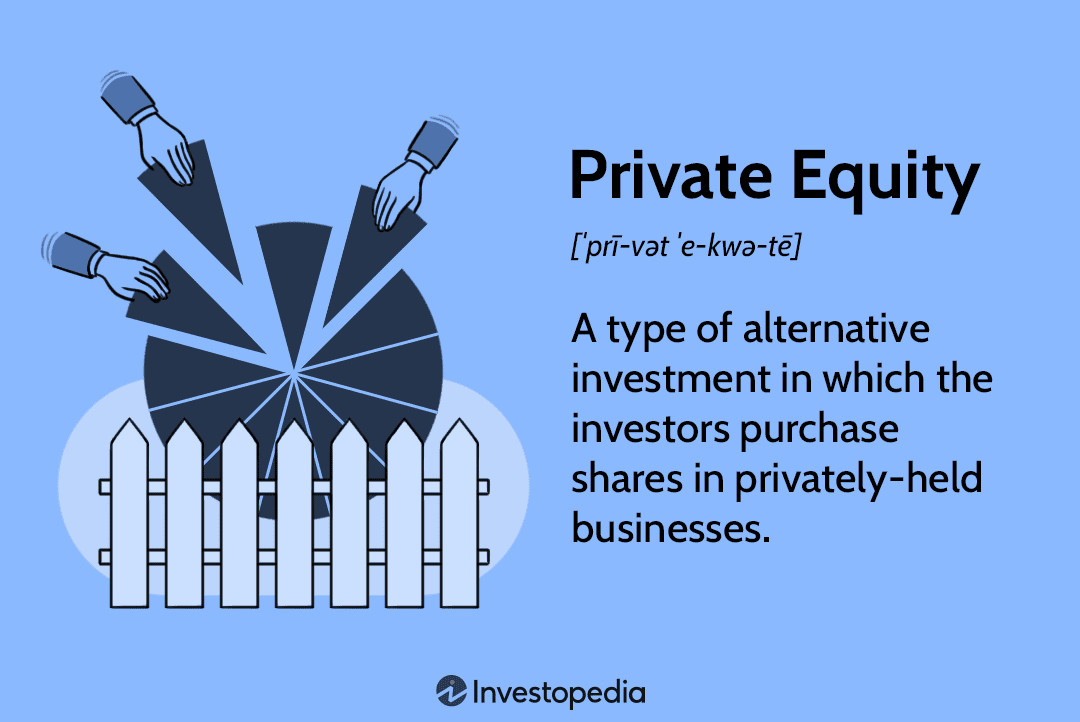Private Equity: Is It Still a Good Investment in 2024?
Let's talk private, shall we?
Private equity that is.
For those that may not remember (or choose to forget), stocks, as measured by the S&P 500, lost over 18 percent in 2022, placing that 12-month span in the bottom decile of stock returns over the previous century. Meanwhile, bonds, as measured by the Vanguard Total Bond Index, lost 13.3 percent in 2022, making it the worst year ever for U.S. fixed income investors.
Yes, 2022 was a dismal, utterly forgettable year for investors in public markets.
Private equity, on the other hand, boomed in 2022. Private equity posted its second-best year ever in terms of asset growth in 2022, according to Bain & Company, riding a wave of momentum coming off the industry’s record-breaking performance in 2021. That is, until June 2022 when US central bankers issued the first in a series of three-quarter-point interest rate hikes.
And over the course of that volatile year, financial advisors raised their private equity allocations in client portfolios to heretofore unseen levels. Tired of relaying to their anxious clients the drubbings of their publicly-traded portfolios, wealth managers clamored for private investments that were not marked-to-market each day.
As a result, financial advisors effectively waved goodbye to 60/40 stock/bond portfolios and said hello to 60/20/20 schemes, with that last piece being private equity. Or 50/40/10. Or any combination that put private equity in the mix to stop the red ink bleeding onto client statements and screens.
Until, of course, the bleeding stopped and publicly traded stocks took off the following year.
The S&P 500, led by the AI-powered Magnificent 7, surged 24 percent in 2023. And it’s up almost 16 percent so far in 2024. Over on the fixed income side, the yield on the benchmark 10-Year Treasury rose to a healthy 3.75 percent at last check, satisfying bond investors who had survived on nothing for so long.
So with the public equity markets still flirting with record highs and bond investors finally sated with adequate guaranteed payouts, where does private equity fit into advisor plans going forward?
The Debate Over Private Equity in 2024
The question of whether or not private equity remains a viable investment in 2024 is a complex one, with advisors expressing a range of opinions. Some, like Robert Pearl, co-founder and wealth advisor at G&P Financial, are hesitant, citing concerns about valuations and the potential for lower returns in the future.
“I have a favorite quote from Charlie Munger regarding PE,” says Pearl. “And that is ‘Private equity, as practiced today, often involves significant amounts of leverage. That can make the outcome look great in good times, but it’s dangerous because it multiplies the impact of bad outcomes. Leverage is a two-edged sword.’”
As a result, Pearl is not currently recommending PE investments to clients and most likely will not be recommending them for the foreseeable future.
Others, like Brooks Harrington, CIO Private Equity at Federated Hermes, are less concerned about valuations, particularly when compared to the sky-high valuations of publicly traded equities.
“Within private equity and especially within the lower end of the market where there's more companies and more opportunity and less competition, there's less price efficiency,” said Harrington.
“We're trying to find founders that have built their business up for a number of years. They're looking for a partner to take them to the next level. They're not necessarily maximizing price. They're looking for a partner to then professionalize the business. So in the lower end of the market, specifically where we focus, valuations are still very much acceptable,” said Harrington.
A Cautious Approach
Many advisors, like Matt Malone, head of investment management at Opto Investments, are taking a cautious and selective approach to private equity. Malone sees PE as a core allocation in a diversified private markets portfolio, but stresses the importance of careful scrutiny of managers and their strategies.
“While the expected falling interest rate environment should generally result in a tailwind to PE managers, rates remain relatively high overall compared to the previous decade and we continue to closely scrutinize managers that rely on high levels of leverage to execute on their strategy and instead focus on operationally intensive strategies,” said Malone.
Added Malone: “With the mega cap managers continuing to grow and decreased liquidity in this space, there are tactical opportunities to allocate to secondaries and managers targeting smaller companies that can exit to larger strategic buyers to potentially drive alpha.”
Long-Term Diversification
Despite the current debate, some advisors, like Joseph Spada, private wealth advisor at Summit Financial, remain strong advocates for private equity as a long-term diversification strategy. Spada highlights several key benefits of PE, including the potential for higher returns than stocks and bonds, a hedge against inflation and currency risk, and access to a broader universe of unique investments.
On average, Spada’s clients are about 10 percent allocated to private equity, a number that varies from client to client based on factors such as risk tolerance and liquidity needs.
“Endowments, family offices, and pension funds have about 30 to 50 percent of their assets in alternative investments. On average, retail investors are only at about 5 percent,” said Spada. “If anything, we expect to increase our exposure to private equity in the next year, however, not in any significant way.
Positive Outlook for the Future
While some advisors may be hesitant, others, like Ted Brooks, founder of Nordwand Capital, and Will Sterling, partner at TritonPoint Wealth, remain optimistic about private equity’s prospects in the next 12 months.
Brooks points to the potential for lower base interest rates and a strong US economy as positive factors for PE.
“Our client base is generally ultra-high net worth and family offices, and we tend to allocate to private markets in the higher percentages similar to those for the endowment and foundation space,” said Brooks. “We don’t see that changing in the near term and would expect to continue allocating in a similar vein.”
Sterling believes that continued improvement in capital markets and M&A activity will benefit secondaries and buyouts.
“For many years, PE total returns, when decomposed, were driven predominantly by market multiple expansion and leverage,” said Sterling. “With higher financing costs, finding GPs who focus on value creation to drive revenue growth and margin expansion will be critical,” said Sterling, adding that there remain “pockets of value in the private equity space from a multiple perspective that should allow GPs to continue to capitalize on.”
A Long-Term Play
While the debate continues, one thing is clear: private equity is not a short-term investment. Rafia Hasan, chief investment officer at Perigon Wealth Management, emphasizes the importance of a long-term view when considering PE.
“Investors should look beyond one year when considering private equity,” said Hasan.
Ultimately, the decision of whether or not to invest in private equity is a personal one that should be made after careful consideration of individual circumstances and goals. While some advisors may be wary in the short term, many see private equity as a valuable long-term diversification strategy in a well-balanced portfolio.
What to Look for in a Private Equity Manager
If you're considering investing in private equity, it's crucial to carefully evaluate potential managers. Here are some key factors to look for:
- Track record: Look for managers with a history of successful investments and strong returns.
- Investment strategy: Understand the manager's investment philosophy and approach. Do they focus on specific industries, sectors, or company sizes?
- Team experience: Look for a team with deep industry expertise and a strong track record of success.
- Fees and expenses: Be aware of the fees and expenses associated with the investment, as these can impact your overall returns.
- Transparency and communication: Choose a manager who is transparent about their investment strategy and communicates regularly with investors.
Understanding the Private Equity Landscape
It's important to recognize that private equity is a complex and specialized asset class. While the potential rewards can be significant, so are the risks. Before making any investment decisions, seek advice from a qualified financial advisor who can help you understand the nuances of private equity and determine if it's a suitable fit for your individual circumstances.


















